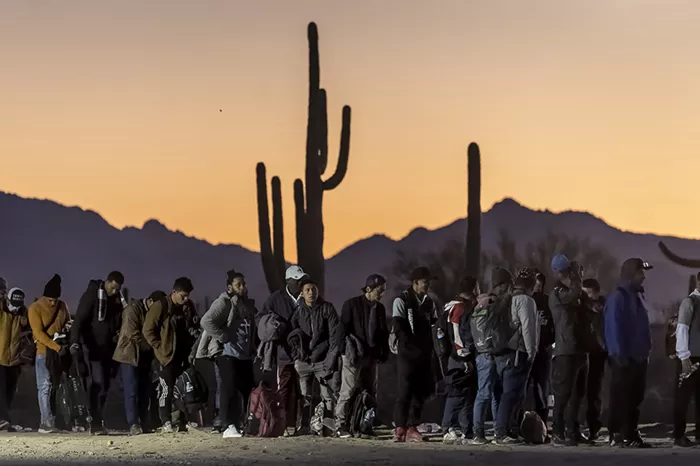Most U.S. Voters Believe Immigrants Fill Jobs Americans Don’t Want.
A recent Pew Research Center survey reveals that a significant majority of registered voters in the U.S. believe immigrants—both undocumented and legal—primarily take on jobs that American citizens do not want. The survey, conducted in August 2024, shows that three-quarters of voters feel undocumented immigrants fill these roles, while 61% hold the same view regarding legal immigrants.
This topic has become a focal point in the 2024 presidential election, where both Democratic candidate Kamala Harris and Republican candidate Donald Trump have differing perspectives, yet some common ground.
Supporters’ Views
The survey indicates that a large majority of supporters for both candidates believe undocumented immigrants take jobs that Americans are unwilling to do. Specifically, 90% of Harris supporters agree with this statement, in contrast to 59% of Trump supporters.
Moreover, about 70% of Harris supporters say that legal immigrants mostly fill jobs that citizens don’t want, while only 52% of Trump supporters share this view.
Overall, public opinion on this issue has remained stable since May 2020. At that time, 77% of adults believed undocumented immigrants filled unwanted jobs, and 64% thought the same about legal immigrants. Partisan differences have also shown little change.
Racial and Ethnic Perspectives
Views about the role of undocumented and legal immigrants vary by race and ethnicity. For instance, 90% of Asian voters and large majorities of Hispanic (79%), White (75%), and Black (71%) voters believe undocumented immigrants primarily fill jobs that American citizens do not want.
Among Harris supporters, majorities across racial groups agree that undocumented immigrants take on these roles, though Black Harris supporters (75%) are less likely to hold this view than their Hispanic (93%), White (94%), and Asian (96%) counterparts.
When it comes to legal immigrants, 67% of Hispanic voters say these individuals mostly fill jobs that citizens do not want. This view is held by smaller percentages of White (61%), Asian (57%), and Black (54%) voters. Black and Asian Harris supporters are less likely to say legal immigrants fill unwanted jobs compared to White (73%) and Hispanic (77%) Harris supporters.
Immigrant Workforce Statistics
As of 2022, over 30 million immigrants were part of the U.S. workforce, representing 18% of all workers. Among them, lawful immigrants made up 22.2 million, about 13% of the total workforce. Unauthorized immigrants accounted for 8.3 million workers, or roughly 5%. This number has increased since 2019 but remains similar to figures from 2007.
Job Distribution Among Immigrants
In terms of industries, immigrants made up 27% of the workforce in agriculture, forestry, fishing, and hunting in 2022. They also constituted 26% of the construction industry. Notably, there are no major industries in which immigrants outnumber native-born workers.
Unauthorized immigrant workers were most prevalent in construction (13%), agriculture (12%), and leisure and hospitality (7%). Legal immigrant workers were primarily found in transportation and utilities (15%), other services (15%), and professional and business services (14%).
Occupational Breakdown
In terms of occupations, immigrants accounted for 43% of workers in farming, fishing, and forestry in 2022, followed by 29% in construction and extraction. Certain jobs, such as manicurists and pedicurists (73%), taxi drivers (57%), and drywall installers (53%), saw higher numbers of immigrant workers than U.S.-born workers.
Unauthorized immigrant workers represented significant shares in roles like drywall installers (33%), roofers (32%), and construction laborers (24%). Meanwhile, legal immigrant workers made up large portions of jobs like manicurists (60%) and taxi drivers (44%).
This data highlights the critical role immigrants play in the U.S. labor market, particularly in sectors where American citizens may be less inclined to work.
Related topics:
- From the Desert to the Strip: How the Immigration Debate Could Impact Nevada’s Economy
- Pennsylvania Town is Flourishing with Haitian Immigrants but Faces Republican Backlash
- Immigration Myths vs. Facts: Clarifying Common Misunderstandings


